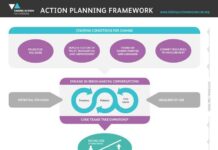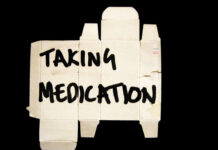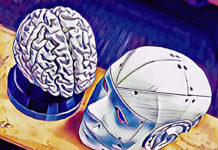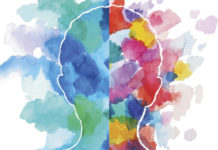Patients More Likely to Refuse Drug-Only Treatment, Study Finds
The American Psychological Association (APA) recently published a study finding that patients assigned to drug-only treatments were more likely to refuse treatment, and more likely to drop out before treatment completion, than patients assigned to psychotherapy only.
Providing Trauma Informed Brief Counseling to College Students
Recommendations on how to provide trauma-informed, short-term counseling to college students who have experienced sexual assault and interpersonal violence.
Reducing Overuse of Low-Value Treatments
Researchers provide an action-planning framework to engage providers in the reduction of low-value healthcare.
Mad Economy: Let’s Change the World!
Everyone in the world is either touched by their own mental health issues or have had a family member affected. What if they directed their buying power to an organization that would use the profits to fund exciting mental health & recovery projects both in the developing world and in their own countries; projects that would be ethical, non-coercive, personal recovery-based, and were aimed at creating recovery communities? What if they could buy products, crafts, services, art, music, books from people who had experienced mental health issues, enabling them to set up their own businesses or buy from social co-operatives that enabled distressed people to work and earn a living wage?
Confusion Over Antipsychotic Dosing Data in RAISE Study
Yesterday, the New York Times reported that schizophrenia patients in an experimental treatment program (RAISE) who experienced better outcomes had been on lower doses of antipsychotics than normal. However, the article published in the American Journal of Psychiatry on Tuesday did not divulge any data on the varying antipsychotic drug doses in the different study groups.
New Data Supports Acupuncture as a Treatment for Depression
Researchers found acupuncture effective in the treatment of chronic pain and depression
Danish Study Finds Better 10-year Outcomes in Patients Off Antipsychotics
Study finds that 74% of patients with a psychotic disorder off antipsychotics at end of 10 years are in remission.
United Nations Report Calls for Revolution in Mental Health Care
In a new report, the United Nations Special Rapporteur on the right to health, Dr. Dainius Pūras, calls for a move away from the biomedical model and “excessive use of psychotropic medicines.”
Are Depression Guidelines Missing the Evidence for Exercise?
A recent review suggests that depression guidelines do not incorporate evidence for exercise within a stepped-care approach and may be over-reliant on pharmacological treatments.
Data Challenges Superiority of Manualized Psychotherapy
New data fails to support the promotion of manualized psychotherapy as superior to non-manualized forms of psychotherapy.
“Medication for Schizophrenia: Less is More?”
Neuroskeptic weighs in on the controversy over the lack of antipsychotic dose data in the RAISE study and the misleading media coverage. He points out that one of the treatment interventions was a computerized medication management system called COMPASS, which recommends doctors use lower doses than they otherwise might.
“Does Psychotherapy Research with Trauma Survivors Underestimate the Patient-Therapist Relationship?”
Joan Cook, professor of Psychology at Yale, writes than in her work with military veterans she realized that her psychotherapy techniques mattered much less than her training had indicated. Instead, what mattered was “the bond forged over years of therapy,” known as “the therapeutic alliance.”
What is Brain Fog: The Mental Fatigue That Ruins Your Mood
From ZME Science: More people than ever before are regularly experiencing "brain fog," a collection of symptoms including fatigue, inability to focus, memory deficiency, confusion,...
Call For Abstracts: Philosophical Perspectives on Critical Psychiatry
The Association for Advancement in Philosophy and Psychiatry is issuing a call for abstracts, with a particular interest in submissions from service users. The...
There is More to Mindfulness than the Brain
According to Lifshitz and Thompson, mindfulness is best understood as “complex orchestration of cognitive skills embodied in a particular social context.”
When Does it Help to Have Background Information in Child-Centered Play Therapy?
Knowing the client’s history can help foster genuine empathic responding, a key component to child-centered play therapy.
Research Shows Mindfulness can Decrease Anxiety
A new study explores the impact of a Mindfulness-Based intervention on stress-related biomarkers in individuals diagnosed with Generalized Anxiety Disorder (GAD).
More Research Needed on Climate Change-Related Ecological Grief
Researchers outline the concept of ecologically driven grief due to climate change and recommend future research to better understand the psychological impact of climate change.
Research Progresses on Mindfulness Based Interventions for Adolescents
A new meta-analysis analyzes randomized control trials of Mindfulness-Based Interventions for adolescents.
Physical Inactivity Associated with Worse Cognitive Functioning in Psychosis
Higher levels of sedentary behavior are associated with poorer cognitive functioning in patients diagnosed with schizophrenia.
Call for Client Inclusion in Recovery-Focused Psychiatric Diagnosis
A new review, published in The Lancet Psychiatry, examines the perspectives of clinicians and service-users on psychiatric diagnosis.
Yoga Intervention Effective in Reducing Depressive Symptoms
Researchers find that yoga and controlled breathing reduced symptoms in individuals diagnosed with depression.
Mental Well-Being and Engagement in the Arts
Public health researchers at the University of Western Australia examined the relationship between recreational arts engagement and mental well-being in the general population. The results, which have implications for policy makers as well as health practitioners, indicate that those who engage with the arts for two or more hours per week have significantly better mental well-being.
Clinical Guidelines for Depression Need Urgent Revision
A coalition of 35 health organizations expressed serious concerns that the NICE guideline for adult depression may cause clinical harm—they demand “full and proper” revisions.
International Psychologists To Host Public Webinar on Rational Emotive Behavior Therapy
The Society for International Psychology, Division 52 of the American Psychological Association, will host a webinar entitled “The Humanistic, Vigorous and Universal Approach of Rational Emotive Behavior Therapy.”



























